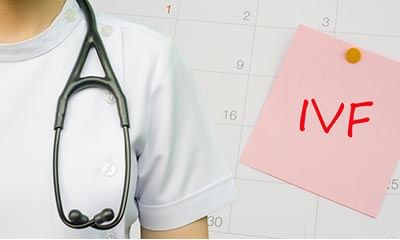Natural Supplements For Boosting Fertility
Supplements
There is now a great deal of scientific knowledge about the use of nutritional supplements and their beneficial effects on both male and female fertility. As you will see, these supplements can be very effective in re-balancing your hormones, as well as improving you and your partner’s overall health, which are so vital for successful conception.
Scientific research has shown that certain vitamins and minerals can increase your chances of getting and staying pregnant. In order to maximise your chances of conceiving it is very important that you and your partner are in optimum health. By eliminating nutritional deficiencies and improving sperm production and mobility you can dramatically increase your chances of getting pregnant. In order to do this it is essential that you are obtaining the right nutrients and in the right quantities to enhance your success.
Supplements are necessary because even the best diet in the world mayl not contain all the nutrients you need to give you the best chance of conceiving.
Folic acid
It is now known that folic acid can prevent spina bifida in your baby, and it is essential that you get plenty both before and during pregnancy. And that’s not all: folic acid is undoubtedly important, but it is just part of the very important b-complex family of vitamins that are necessary to produce the genetic materials dna and rna, not only of the egg but also the sperm. Together with vitamin b12, folic acid works to ensure that your baby’s genetic codes are intact. Remember: it’s not enough to take folic acid alone when you are trying to become pregnant. All of the b vitamins are essential during the pre-conceptual period. Research has shown that giving b6 to women who have trouble conceiving increases fertility and vitamin b12 has been found to improve low sperm counts.
Zinc is the most widely studied nutrient in terms of fertility for both men and women. It is an essential component of genetic material and a zinc deficiency can cause chromosome changes in either you or our partner, leading to reduced fertility and an increased risk of miscarriage. Zinc is necessary for your body to ‘attract and hold’ (utilise efficiently) the reproductive hormones, oestrogen and progesterone.
And it’s equally important for your partner: zinc is found in high concentrations in the sperm. Zinc is needed to make the outer layer and tail of the sperm and is, therefore, essential for the health of your partner’s sperm and, subsequently, your baby. Interestingly, several studies have also shown that reducing zinc in a man’s diet will also reduce his sperm count.
Selenium is an antioxidant that helps to protect your body from highly reactive chemical fragments called free radicals. For this reason, selenium can prevent chromosome breakage, which is known to be a cause of birth defects and miscarriages. Good levels of selenium are also essential to maximise sperm formation. Blood selenium levels have been found to be lower in men with low sperm counts.
Omega 3 fatty acids
These essential fats have a profound effect on every system of the body, including the reproductive system and they are crucial for healthy hormone functioning. Omega 3 fatty acids also control inflammation which may interfere with getting and staying pregnant. For men essential fatty acid supplementation is crucial because the semen is rich in prostaglandins which are produced from these fats. Men with poor sperm quality, abnormal sperm, poor motility or low count, have inadequate levels of these beneficial prostaglandins.
Many of the women I see in the clinic have been taking evening primrose oil supplements – an omega 6 fatty acid – for years and have not been eating enough omega 3 oils, or taking them in supplement form, to counterbalance this. Some women are also taking combinations such as omega 3, 6, and 9 in supplement form because they have heard that we need a good balance of all the omega fatty acids. This is true, but you have to take into account what your own levels may be in the first place. It is no good adding in more omega 6 if you have already got enough or in fact too much in your body. (you can now have a blood test to tell you if you have the correct levels of omega 3 to omega 6 in your body see below). To check whether you have sufficient levels of omega 3 please click omega 3 deficiency test (at home finger prick blood)
Vitamin e
Vitamin e is another powerful antioxidant and has been shown to increase fertility when given to both men and women. Men going for ivf treatment with their partners have been given vitamin e, and fertilisation rates have, as a result, increased from 19 to 29 percent. It has been suggested that the antioxidant activity of vitamin e might make the sperm more fertile.
Vitamin c is also an antioxidant, and studies show that vitamin c enhances sperm quality, protecting sperm and the dna within it from damage. Some research has indicated that certain types of dna damage in the sperm can make it difficult to conceive in the first place, or it can cause an increased risk of miscarriage if conception does take place. If dna is damaged, there may be a chromosomal problem in the baby, should the pregnancy proceed. Whether or not dna damage does have these effects has not been conclusively proven, but it’s worth taking vitamin c and the other antioxidants as a precautionary measure.
Vitamin c also appears to keep the sperm from clumping together, making them more motile.
One study has shown that women taking the drug clomiphene to stimulate ovulation will have a better chance of ovulating if vitamin c is taken alongside the drug. Clomiphene does not always work in every woman, but the chances are often increased when vitamin c is supplemented.
Beta-carotene
This is the vegetable precursor to vitamin a and is completely safe during pregnancy. Beta-carotene is a powerful antioxidant which helps to protect egg and sperm dna from damage by harmful free radicals which can affect the quality of both the egg and sperm. Free radicals are highly unstable and set off a process called oxidation which can have harmful effects on the every cell in the body. Beta- carotene will be contained in your multivitamin and mineral.
L-arginine
This is an amino acid found in many foods and the head of the sperm contains an exceptional amount of this nutrient, which is essential for sperm production. Supplementing with l-arginine can help to increase both the sperm count and quality.
Note: people who have herpes attacks (either cold sores or genital herpes) should not supplement with l-arginine because it stimulates the virus.
L-carnitine
This amino acid is essential for normal functioning of sperm cells. According to research, it appears that the higher the levels of l-carnitine in the sperm cells, the better the sperm count and motility.
Furthermore, by adopting a healthier lifestyle you will be more likely to prevent fertility problems.



+1.svg)
